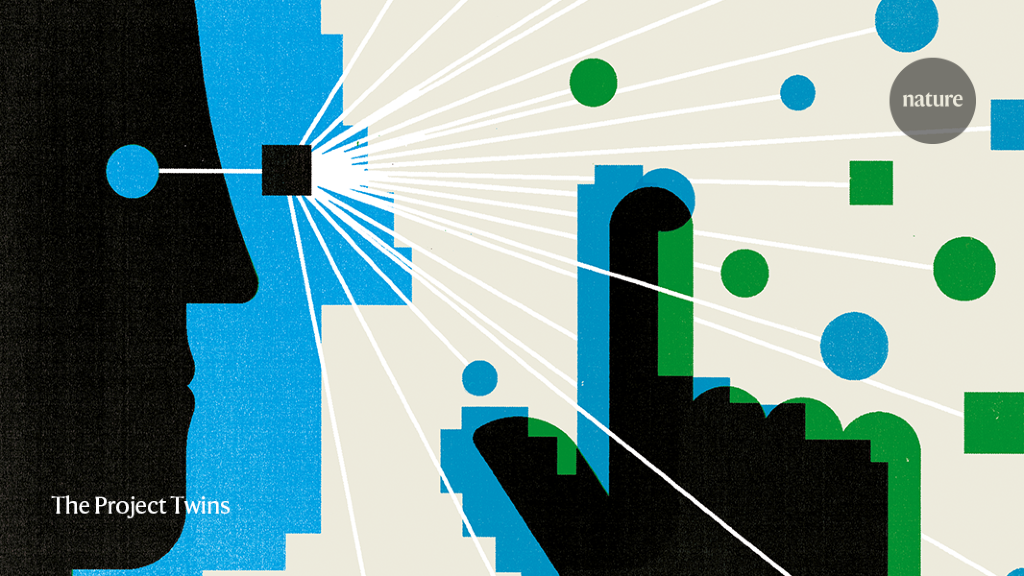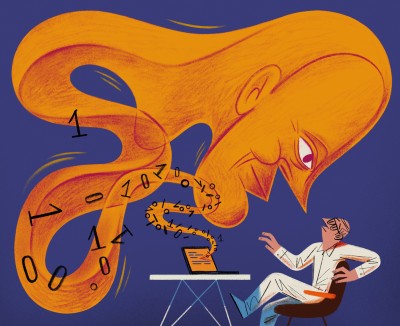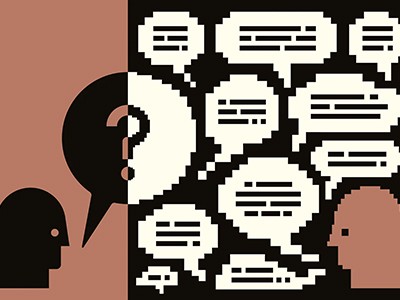Artificial-intelligence search engines wrangle tutorial literature

Table of Contents
For a researcher so concentrated on the past, Mushtaq Bilal spends a whole lot of time immersed in the engineering of tomorrow.
A postdoctoral researcher at the University of Southern Denmark in Odense, Bilal research the evolution of the novel in nineteenth-century literature. But he’s possibly very best acknowledged for his on line tutorials, in which he serves as an informal ambassador involving lecturers and the rapidly increasing universe of search tools that make use of synthetic intelligence (AI).
Pulling from his track record as a literary scholar, Bilal has been deconstructing the course of action of tutorial producing for years, but his do the job has now taken a new tack. “When ChatGPT arrived on the scene back again in November, I recognized that one could automate lots of of the actions using different AI programs,” he states.
This new technology of look for engines, driven by equipment discovering and massive language versions, is shifting past key phrase searches to pull connections from the tangled internet of the scientific literature. Some packages, such as Consensus, give investigate-backed solutions to yes-or-no thoughts other people, this sort of as Semantic Scholar, Elicit and Iris, act as electronic assistants — tidying up bibliographies, suggesting new papers and generating analysis summaries. Collectively, the platforms facilitate a lot of of the early methods in the crafting system. Critics notice, on the other hand, that the plans continue to be rather untested and run the threat of perpetuating existing biases in the academic publishing approach.

What ChatGPT and generative AI indicate for science
The teams driving these tools say they constructed them to combat ‘information overload’ and to cost-free scientists up to be much more inventive. In accordance to Daniel Weld at the Allen Institute for Synthetic Intelligence in Seattle, Washington, and Semantic Scholar’s main scientist, scientific expertise is growing so promptly that it can be just about not possible to remain on top rated of the latest study. “Most research engines assistance you obtain the papers, but then you are remaining on your possess hoping to ingest them,” he claims. By distilling papers into their important points, AI applications support to make that facts available, Weld says. “We were all faithful fans of Google Scholar, which I still discover beneficial, but the imagined was, we could do greater.”
The following wonderful plan
The crucial to executing much better lies in a diverse style of research. Google Scholar, PubMed and other standard search equipment use search phrases to find very similar papers. AI algorithms, by contrast, use vector comparisons. Papers are translated from text into a established of figures, named vectors, whose proximity in ‘vector space’ corresponds to their similarity. “We can parse far more of what you suggest, the spirit of your look for question, simply because a lot more information and facts about the context is embedded into that vector than is embedded into the textual content itself,” describes Megan Van Welie, lead program engineer at Consensus, who is primarily based in San Francisco, California.
Bilal employs AI tools to observe connections among papers down attention-grabbing rabbit holes. Though looking into descriptions of Muslims in Pakistani novels, AI-created recommendations primarily based on his searches led Bilal to Bengali literature, and he in the end integrated a area about it in his dissertation. For his postdoc, Bilal is learning how Danish writer Hans Christian Andersen’s stories have been interpreted in colonial India. “All that time invested on the background of Bengali literature arrived dashing back again,” he states. Bilal uses Elicit to iterate and refine his queries, Investigation Rabbit to recognize sources and Scite — which tells a consumer not only how usually papers are cited, but in what context — to keep track of educational discourse.

Racial inequalities in journals highlighted in big study
Mohammed Yisa, a investigation technician in the vaccinology staff at the Health care Exploration Council Unit The Gambia of the London School of Hygiene & Tropical Medicine, follows Bilal on Twitter (now known as X), and from time to time spends evenings testing the platforms that Bilal tweets about.
Yisa notably enjoys making use of Iris, a search engine that generates map-like visualizations that join papers close to themes. Feeding a ‘seed paper’ into Iris generates a nested map of similar publications, which resembles a map of the entire world. Clicking further into the map is like zooming in from a state-vast watch down to, say, states (sub-themes) and metropolitan areas (person papers).
“I consider myself a visible learner, and the map visualization is not one thing I have found before,” Yisa says. He’s at the moment using the instruments to establish papers for a review on vaccine fairness, “to see who is conversing about it at the moment and what is currently being explained, but also what has not been said”.
Other instruments, this sort of as Analysis Rabbit and LitMaps, tie papers collectively by way of a network map of nodes. A research motor qualified at medical experts, known as Method Professional, produces a similar visualization, but back links matters by their statistical relatedness.

Drowning in the literature? These smart software package instruments can support
Though these searches depend on ‘extractive algorithms’ to pull out practical snippets, a number of platforms are rolling out generative capabilities, which use AI to build first textual content. The Allen Institute’s Semantic Reader, for occasion, “brings AI into the examining experience” for PDFs of manuscripts, Weld says. If customers face a image in an equation or an in-text quotation, a card pops up with the symbol’s definition or an AI-produced summary of the cited paper.
Elicit is beta-screening a brainstorming feature to aid deliver superior queries as effectively as a way to give a multi-paper summary of the top rated four look for benefits. It takes advantage of Open up AI’s ChatGPT but is qualified only on scientific papers, so is much less vulnerable to ‘hallucinations’ — blunders in generated textual content that seem appropriate but are in fact inaccurate — than are searches centered on the complete Web, says James Brady, the head of engineering for Elicit’s mum or dad corporation, Ought, who is centered in Oristà, Spain. “If you’re earning statements that are joined to your popularity, researchers want some thing a little bit far more dependable that they can rely on.”
For his component, Miles-Dei Olufeagba, a biomedical analysis fellow at the University of Ibadan in Nigeria, nevertheless considers PubMed to be the gold standard, calling it “the refuge of the medical scientist”. Olufeagba has tried Consensus, Elicit and Semantic Scholar. Success from PubMed may possibly have to have extra time to sort by way of, he states, but it in the end finds increased-excellent papers. AI tools “tend to shed some info that may possibly be pivotal to one’s literature search”, he says.
Early days
AI platforms are also inclined to some of the identical biases as their human creators. Research has continuously documented how educational publishing and lookup engines drawback some teams, which includes ladies1 and individuals of color2, and these similar trends emerge with AI-based instruments.
Experts who have names that incorporate accented characters have explained problems in obtaining Semantic Scholar to produce a unified writer profile, for occasion. And due to the fact numerous engines, together with Semantic Scholar and Consensus, use metrics these kinds of as quotation counts and impact aspects to determine position, perform that is posted in prestigious journals or sensationalized inevitably will get bumped to the top rated more than investigation that may well be much more suitable, developing what Weld phone calls a “rich-get-richer effect”. (Consensus co-founder and chief govt Eric Olson, who is based in Boston, Massachusetts, claims that a paper’s relevance to the query will constantly be the major metric in deciding its position.)
None of these engines explicitly mark preprints as worthy of larger scrutiny, and they display screen them along with published papers that have been through official peer assessment. And with controversial questions, these kinds of as no matter whether childhood vaccines induce autism or human beings are contributing to global warming, Consensus sometimes returns responses that perpetuate misinformation or unverified claims. For these charged thoughts, Olson states that the staff occasionally testimonials the results manually and flags disputed papers.

Could AI assistance you to produce your subsequent paper?
Eventually, nevertheless, it’s the user’s obligation to validate any statements, builders say. The platforms generally mark when a function is in beta testing, and some have flags that indicate a paper’s high-quality. In addition to a ‘disputed’ tag, Consensus is at the moment establishing means to notice the variety of analyze, the variety of participants and the funding source, a thing Elicit also does.
But Sasha Luccioni, a exploration scientist in Montreal, Canada, at the AI agency Hugging Face, warns that some organizations are releasing merchandise also early since they count on buyers to boost them — a typical apply in the tech-begin-up world that does not gel well with science. Teams have also become more secretive about their styles, making it more difficult to handle moral lapses. Luccioni, for occasion, scientific tests the carbon footprint of AI versions, but suggests she struggles to obtain even basic information these types of as the size of the design or its teaching period — “basic stuff that doesn’t give you any form of secret sauce”. Whereas early arrivals this sort of as Semantic Scholar share their fundamental software package so that some others can make on it (Consensus, Elicit, Perplexity, Related Papers and Iris all use the Semantic Scholar corpus), “nowadays, companies do not deliver any information, and so it’s come to be considerably less about science and additional about a product”.
For Weld, this creates an further imperative to make sure that Semantic Scholar is clear. “I do think that AI is shifting awfully speedily, and the ‘let’s remain ahead of every person else’ incentive can drive us in harmful directions,” he claims. “But I also assume there is a big quantity of profit that can occur from AI know-how. Some of the most important problems dealing with the earth are most effective confronted with really vivid exploration programmes, and that’s what gets me up in the early morning — to aid enhance scientists’ productiveness.”
/cloudfront-us-east-1.images.arcpublishing.com/gray/MZZ6VZA235A7XOAVDRAO3AOUWQ.jpg)





